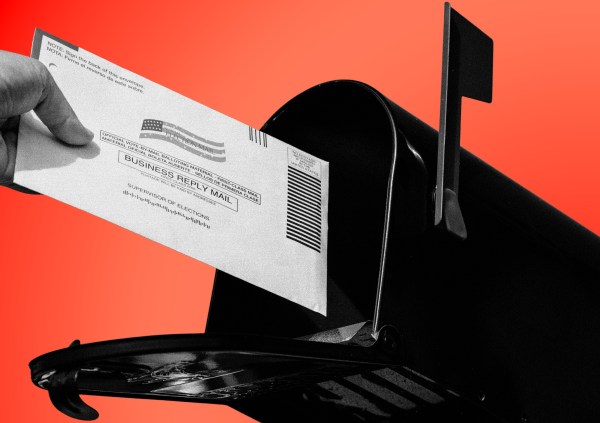A sitting president encouraged an attack on our seat of government—that’s what impeachment is for. It doesn’t matter if Donald Trump’s speech was protected by the First Amendment. Impeachment is a political standard. It is what a majority of the House of Representatives say it is. And there can be little doubt that our Founders created the impeachment process—a high bar that requires two-thirds of the Senate to agree and bars anyone convicted from holding public office again—for any president who would flirt with tyranny.
The Constitution states that the only punishment that impeachment can bring is removal from office and “disqualification to hold and enjoy any Office of honor.” The Senate can choose to impose one or both of those judgments. And despite some precedent at the turn of the last century in which the Senate held that they needed only a majority vote to bar future office holding, the Constitution makes no distinction—both require two thirds. Impeachment in the House followed by conviction in the Senate could, therefore, bar Donald Trump from ever holding office again. He could not run for president in 2024 or even a Florida congressional seat in 2026. And that power is given solely to Congress by the Constitution; no court could reverse it.
The Senate currently has 99 members, which means the current bar for conviction is 66 members. Democrats hold 48 votes until the two members from Georgia are sworn in, which may not happen until after Inauguration Day.
The first question, then, is whether Democrats can wait until Trump has left office to convict him—not for the purpose of removing him from office, but to disqualify him from holding office again.
In 1876, the same year as one of the most hotly-contested presidential elections in history, President Ulysses S. Grant’s secretary of war, William Belknap, resigned just before the House could vote unanimously to impeach him for profiting from a not-so-clever kickback scheme to fund the lavish parties he was throwing at his home in D.C. The Senate tried him—with Gen. George Custer as a star witness—but only 35 senators voted to convict, which was just shy of the 40 needed to meet the two-thirds threshold required by the Constitution. The senators who voted to acquit didn’t dispute Secretary Belknap’s guilt; they did not believe they could impeach someone who had already left office.
And that means that for those who want to prevent another Trump campaign, it is simply a question of counting to 18. Although Sen. Mitt Romney—the first senator in history to vote to convict a president from his own party—may be able to persuade some of his colleagues to join him this time around, there are not 17 more votes as of today. Too many Republican voters were fed lie after lie for too long, and these senators will not be able to convince their constituents that they did anything other than turn their back on their flawed-but-better-than-the-other-guy president.
But what if Biden could offer something to give them cover back home? President Trump is immune from federal criminal conviction while in office. After January 20, however, he is just like every other citizen. And while his role in the events of January 6 may not be indictable, Trump has been reported to be considering pardoning himself, which at least implies that he is concerned about the potential of such criminal investigations.
If Biden promises to pardon Trump for all crimes committed before January 20, 2021, at least a few Republican senators would be able to explain that they voted to convict—not to punish Trump—but to help him. And to allow the country to move on.
When President Gerald Ford pardoned Richard Nixon after he resigned rather than face impeachment, Ford said he wanted the county to be able to avoid “prolonged and divisive debate.” Ford, however, was a member of the president’s own party. And Nixon resigned voluntarily. Biden will have no such cover to pardon Trump on either count. And yet, the country will be harmed by endless debate and investigations into Trump and Trump will only delight in the attention.
In this pardon-for-conviction deal, Biden can tell his voters that he pardoned Trump in exchange for removing Trump from public life and 18 GOP Senators can say they took the deal to protect Trump from ravenous, partisan prosecutors.
And America moves forward.









Please note that we at The Dispatch hold ourselves, our work, and our commenters to a higher standard than other places on the internet. We welcome comments that foster genuine debate or discussion—including comments critical of us or our work—but responses that include ad hominem attacks on fellow Dispatch members or are intended to stoke fear and anger may be moderated.
With your membership, you only have the ability to comment on The Morning Dispatch articles. Consider upgrading to join the conversation everywhere.